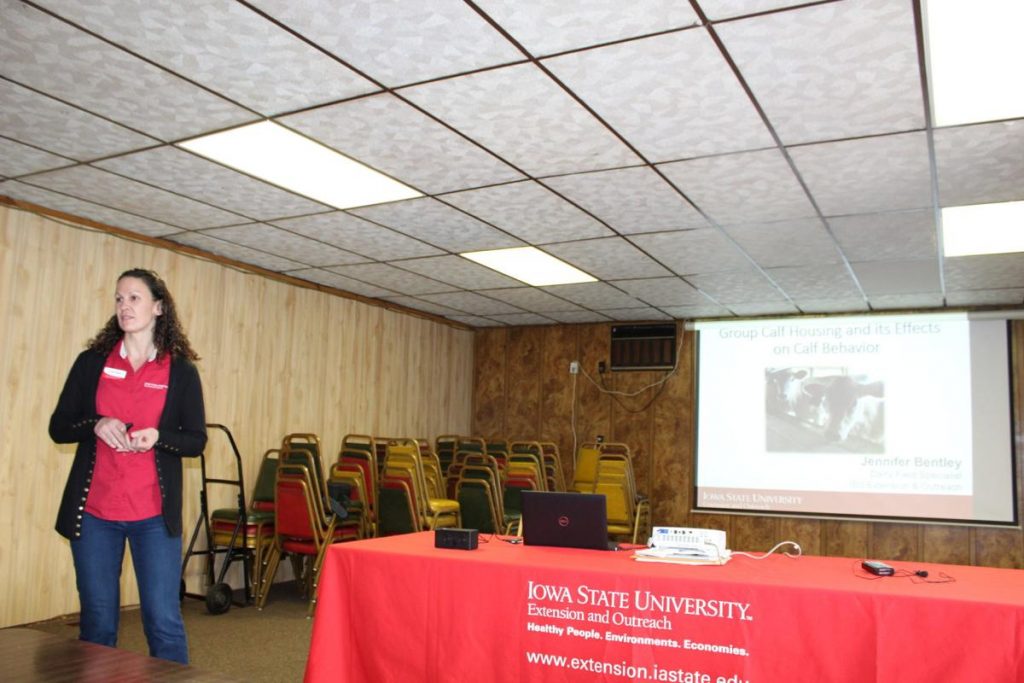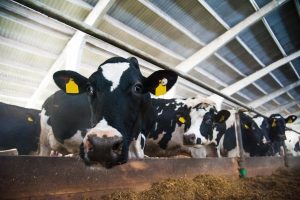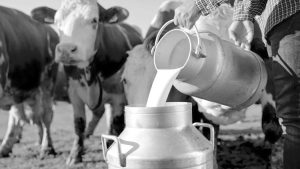
With some dairy processing plants asking dairy farmers to cut back milk production, and even enforcing production quotas, the dairy field specialist with Iowa State University (ISU) Extension and Outreach suggested ways for producers to navigate these trying times.
“Typically, we dry off cows at 60 to 65 days before they calf, but to cut milk production to meet milk quotas, a farmer could dry up their cows 90 to 100 days before calving,” Bentley said. “If farmers dry up their cows early they need to look at those cows’ nutrition. Herdsmen need to hold down the energy in early dried cows’ ration to prevent calving problems. These cows also need adequate housing and pasture.”
“Cows are heat stressed when the temperature reaches 68 to 70 degrees. Research shows that cooling dry cows during the summer, will improve their production during their next lactation,” said Bentley, who also stated that recent research proves that heifers born to cooled dry cows, will show improved production when they begin lactating.
Bentley said this also would be a time when dairymen can be more selective in culling cows that have foot problems, or show signs of chronic mastitis.
“It’s better dairymen that make these decisions earlier than later,” Bentley said. “Producers may find difficulty in selling culls during the meat processing crisis, so culled cows might have to be fed by themselves until the market opens up.”
Bentley stated that ISU has formulated a workforce contingency plan for the COVID-19 crisis. The published five step plan helps protect herdsmen and their employees, she said. The plan includes social distancing while working together, hand washing and sanitizing procedures, suggests personal protective gear, and directs sick employees to stay home to prevent the spread of the virus.
The publication authored by ISU Farm Management Specialist Melissa O’Rourke outlines a plan for cross-training of current employees, and the training of new contingency workers should they be needed. O’Rourke warns dairymen that if current employees fall prey to the virus, producers need to have a backup plan for working with a reduced workforce.
Bentley also outlined the government’s efforts to help provide some stability in the price of milk. The U.S. government has allocated $3 billion to purchase commodities that will then be given to food banks and other organizations to relieve hunger during the pandemic. As a part of the indirect aid, each month the government will purchase a $100 million of dairy products, which should bolster and stabilize milk pricing in the future.
About $16 billion will be paid directly to all Ag producers to alleviate the financial pain they have suffered. Bentley said that the aid package for dairy farmers is still changing as it’s implemented, but she provided her current understanding of the direct payment process.
“The government averaged the price of milk from the quarter prior to the pandemic, and then averaged prices paid during the pandemic,” she said. “Dairymen will be paid 80 percent of the difference. Milk was at $17.61 per hundred weight in the prior quarter, and the average price during the pandemic was $11.72. Figuring in 80 percent of the difference, dairymen should be compensated at $4.71 price per hundred weight for milk sold during the crisis. If there are more funds available, dairymen might later be compensate for more than the 80 percent. There are some limitation to the aid package, and dairymen need to contact their local FSA Office as sign up is already in progress.”
Bentley provided one last piece of advice for dairymen and their families. She pointed out that these families need to take care of themselves both physically and mentally during these trying times.
“Self and family care is crucial for dairy farmers and their families at this time,” she said.

























